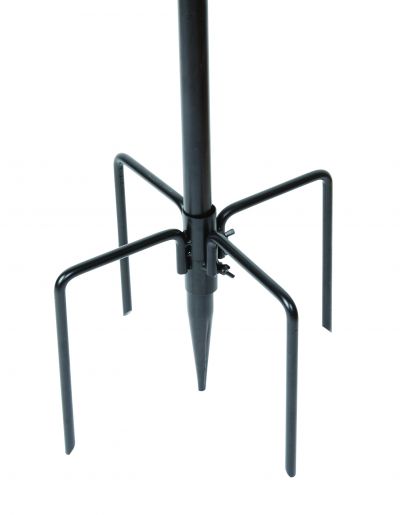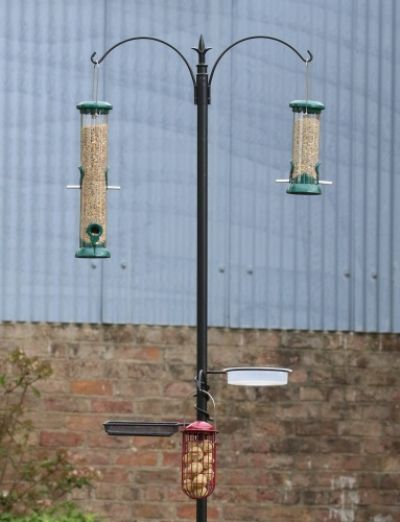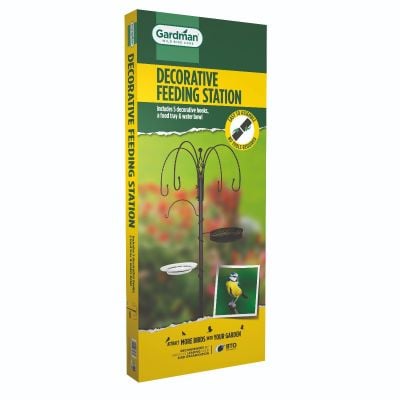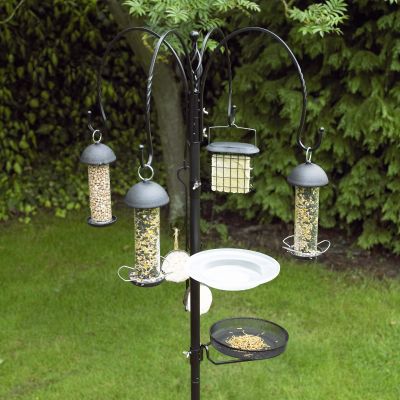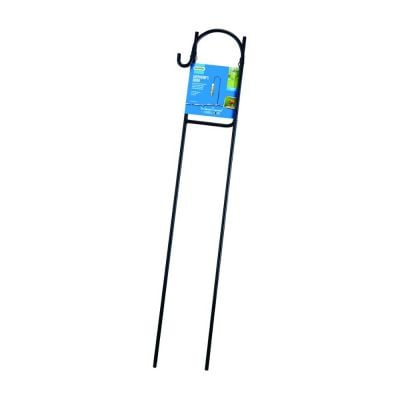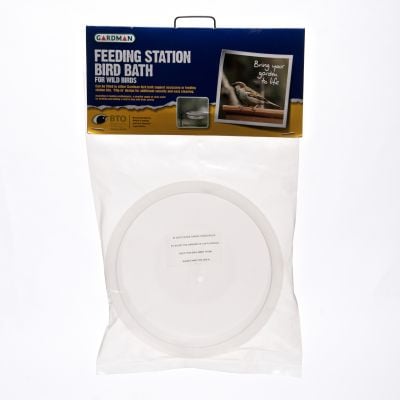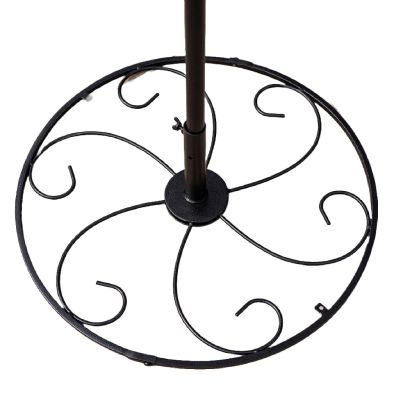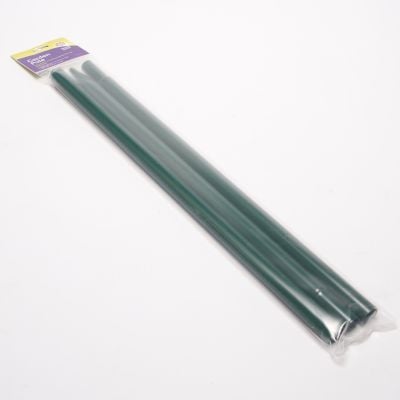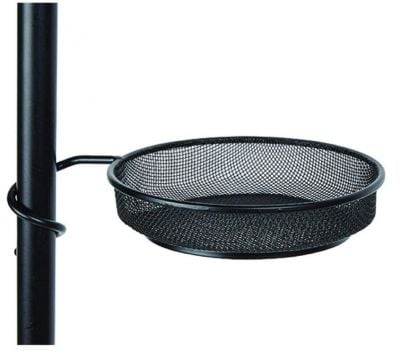The best way to attract wild birds to a feeder station is to include a range of easily-accessible foods on it. Feeder stations are an ideal way to put several types of bird food in the same place, and most have several branches you can hang hanging bird feeders, including tube seed feeders, live mealworm feeders, or peanut feeders, on.
To attract birds to your feeding station, include feeders containing seeds (sunflower hearts are a favourite with many species), suet products (like suet pellets and suet fat balls) as well as live foods such as mealworms or waxworms.
Try to include as many different types of food as possible, as this will help a greater range of birds to be attracted to the station.
Position feeders at different heights on the feeding station to attract different species of birds. For example, you could include a seed tray low to the ground to appeal to ground-feeding birds like Robins and Blackbirds.
Birds only feed in locations where they feel safe. Because of this, it's generally best to place feeding stations and bird feeders somewhere where they are near shelter (such as trees or hedges) but where birds are also at a good vantage point (i.e where they can see the rest of the garden). This is so that they can easily spot oncoming threats and predators.
Squirrels are impressive climbers. They can climb most vertical surfaces, including polished metal poles. Because of this many people ask how to stop squirrels climbing up bird feeder poles.
One way to stop squirrels from climbing up your bird feeder pole is to use a squirrel baffle. This is a round base, which sits at the bottom of bird feeder poles and stations and stops squirrels from being able to cling to the bottom of the feeder pole. Our Universal Squirrel Baffle is a great option; it is adjustable meaning it will easily fit onto the base of any bird feeder pole.
Another option to stop squirrels from getting up bird feeder poles is a squirrel 'slinky'. This attaches around the pole itself and drops down if it is subject to any weight. If a squirrel tries to climb up your bird feeder station, this will slide down the length of the pole and the squirrel will be unable to continue its climb to the top. Our Droll Yankee Squirrel Slinky fits around all our bird feeder poles and around feeder stations with a pole base, making it a great addition to squirrel-prone gardens.
The best height to hang a bird feeder from is at the natural feeding height of birds. Though this differs between species (for example, ground-feeding birds naturally prefer to be closer to ground level), a general rule of thumb is to aim for eye level, which is between 5 and 6 feet. Ideally, position a few feeders on your bird feeder station or pole at different heights, so that birds can feed at their preferred height.
Generally, bird feeders should be placed somewhere birds feeding at them will not be disturbed. For example, avoid placing feeders near busy roads, or close to entrances to your house. This will frighten birds and cause them to avoid the feeder. If possible, place feeders somewhere birds will have a good vantage point of your garden while still having some coverage (for instance, near a tree or hedge which has a clear sightline of your garden).

